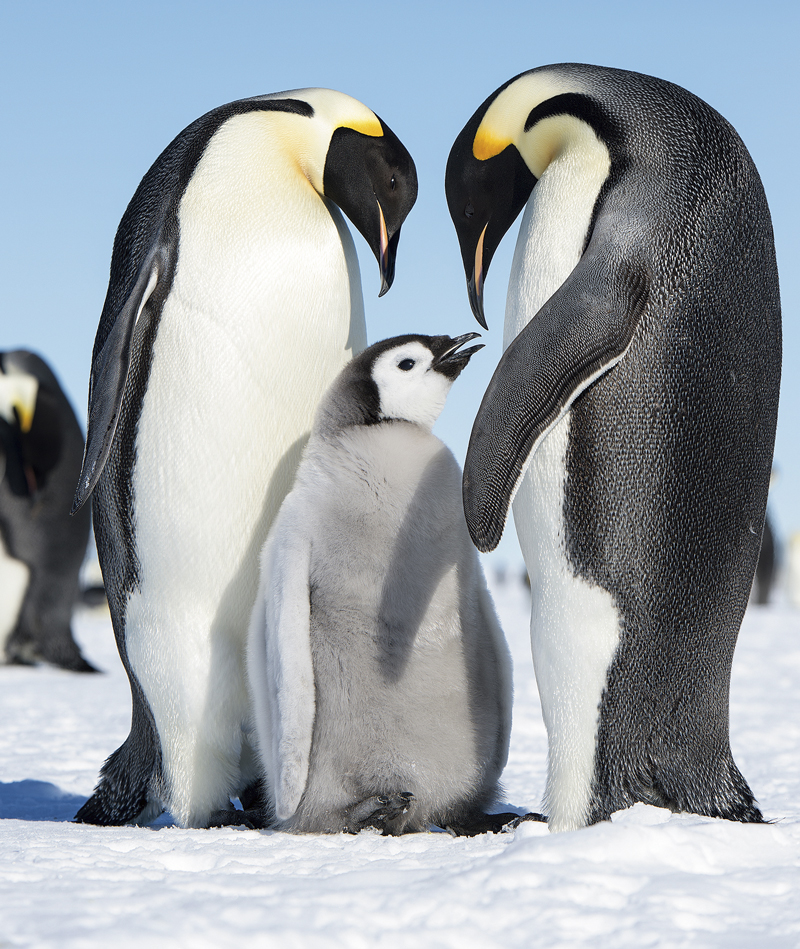
Christopher Michel / Wikimedia CommonsA group of increasingly rare emperor penguinsChristopher Michel / Wikimedia Commons
As a result of melting ice in November and December — spring in the Southern Hemisphere — no chicks survived in four of the five emperor penguin (Aptenodytes forsteri) breeding colonies in Antarctica. In May and June, the females laid their eggs in so-called fast ice, which forms in April, and incubated them for 65 days. But this year, the ice broke and the defenseless chicks, still not fully feathered, fell into the icy Antarctic waters. The region with the greatest loss was the Bellingshausen Sea, on the west of the peninsula. There was only one location — Rothschild Island, where there are 650 breeding pairs — where the chicks managed to fledge and survive. Each breeding colony can be home to up to 3,500 pairs. If ice loss in the Antarctic continues, caused by climate change, more than 90% of emperor penguin colonies could become extinct by the end of this century, warned researchers from the British Antarctic Survey, who identified the catastrophe at the end of last year (Communications Earth & Environment, August 24; ScienceAlert, August 25).
Republish